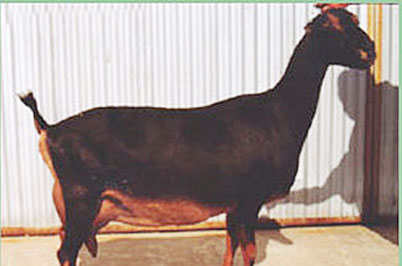The California Mastitis Test (CMT)

INFORMATION ABOUT THE CMT
The California Mastitis Test (CMT) screens for possible mastitis infections. It works well for goats, but the interpretation information is for cows, not goats. 
The CMT reagent reacts with leucocyte cells in milk to form a gel. While some mastitis screening tests do not work well for goat milk because they cannot distinguish between leucocytes, a sign of infection or irritation, and normal epithelial cells which goat milk may have in large numbers. The CMT distinguishes between these cell types. 
Research workers suggest these interpretations of the CMT when you test goat milk: 
A "trace" or "1" reaction, when the mixture looks a bit slimy, is not significant. Normal goat milk can produce this, so you can ignore this reaction. If the mixture forms a distinct gel, the "2" reaction on some CMT charts, the goat probably has mastitis. Further laboratory work should be done to determine what organisms are in the infected half of the udder. 






Log In